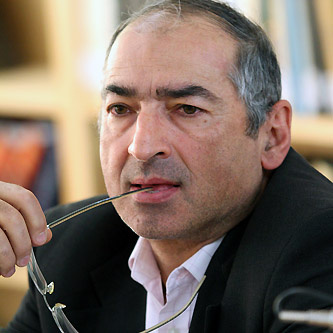Conflict Arising from Humiliation

The first problem that exists between the Arabs and us is the superior attitude we have toward them; in other words, we look at Persian Gulf states as foreign mercenaries of the US, Britain and the West, and we look down on them.
Of course, this view is not limited to the government or officials; it actually exists among many of our people. For example, when two years ago we got into a dispute with the Emirates over the name of the Persian Gulf we witnessed that Iranians gathered in front of the UAE embassy and to ridicule them they lit 35 candles on a cake to humiliate the Emirates as a 35 year-old country (in comparison to Iran, which is over 2500 years old).
Or, whenever the disputes over the three islands or the name of the Persian Gulf has come up we have treated the Arabs with humiliation and have not considered any rights for them, and claimed that the US had motivated them on those issues. “Britain has taught you to say these things about the three islands”, or “Washington has set you up to say such a thing” are examples of our common dialogue with the Arabs.
This while diplomatic language is not the language of insulting any country. It is not good for us as an ancient country to consider and name some other countries as mercenaries or the vigilantes of others.
The problem over the three islands (in the Persian Gulf) has nothing to do with the Islamic republic. This issue came up during the late 40’s and early 50’s, when Britain left the Persian Gulf. In other words, there’s no conspiracy against the Islamic Republic behind this claim. These disputes have existed since the time of Shah.
The Arabs have their own claims as well. No matter how stupid, unrealistic, or non-historical they may seem, we should not humiliate them. Unfortunately, this disease is not unique to our officials. Many who carry titles such as university professors or doctors or engineers also do not know the basics of diplomatic and scientific dialogue.
This issue is not unique to the Emirates, either. For example, when Hoshyar Zibari, the Iraqi foreign minister, talked about the 1974 agreement between Mohammad Reza Shah and Iraq, he immediately faced a wave of criticism that he should not have even discussed that agreement.
This is while Zibari meant to say that both the Shah’s regime and Saddam’s regime were questionable in their legality. Therefore, when two illegitimate regimes signed an agreement, now the legitimate governments of Iran and Iraq can discuss that agreement. Instead of treating the Arabs politely and with respect to resolve our issues, we have always insulted them.
On the other hand, the Arabs have the right to say to the Islamic Republic: Why aren’t you as concerned over the popular uprising in Syria as you are over the one in Bahrain? If your problem is with people being suppressed, then the number of people killed in Syria- your ally and friend- is several times the number of those killed in Bahrain. Why don’t the Iranian Radio and Television networks, Iranian officials, and the Iranian public or private media talk about Syrian martyrs? Doesn’t the bloodshed in the streets of Lazikiye in Damascus have any value? Or is it just Bahraini Shia blood that is valuable? Should the Bazaar, Qom, and universities be closed only because of Bahraini bloodshed? Why doesn’t Iran do anything about the Syrian bloodshed?
These are the questions that need to be answered. Just by saying that Al-Khalifa or Al-Saud are traitors or mercenaries does not solve any problem. Unfortunately, our behavior toward our Arab neighbors has been so cruel that we have left ourselves no credit in the Persian Gulf region. If the Islamic Republic of Iran, which neighbors Bahrain, had only one thousandth of Turkey’s credit; if the Bahraini people were Turks instead of Shias, there would have been no bloodshed because of that credit. However, our behavior and position has degraded us to the extent that everyone dares to say or do anything they wish with us. As evidenced by behavior toward the Shias, and the disrespect shown to those travelling to Arab countries with Iranian passport.
Iranians have invested a great deal in Iraq after the fall of Saddam, but just see how the Iraqis behave toward us now. Or just look at the behavior of the Saudis toward Iranians during the Haj. These are because of the harsh and violent overreactions that we have shown, which consequently have left us no respect.
We’ve acted like a father who beats his child, therefore leaving no value and credit for himself. We have acted like a father who only speaks through the language of violence and threats. This is the only language we have used with the Arabs, while constantly asking them not to be afraid of Iran. But we have created fear through our speech.
I never understood the maneuvers that we perform in the Persian Gulf. Who are they aimed at scaring? Is it the US that fears our military maneuvers in the Persian Gulf, or is it Kuwait, Qatar, Bahrain or the Emirates? If it’s not the US, why do we persist on performing military, maneuvers in the Persian Gulf? Can’t we solve our problems with our Arab brothers in ways other than through military maneuvers?
These conflicts only create more hostility, animosity and distrust among us and the Arabs. There is some chatter that the Saudis will not grant Iranians Haj visas, and not allow them to go on that pilgrimage. The UAE also has a bad attitude toward Iranians living, travelling or working there. Our situation in the Arab world is deteriorating by the day.

